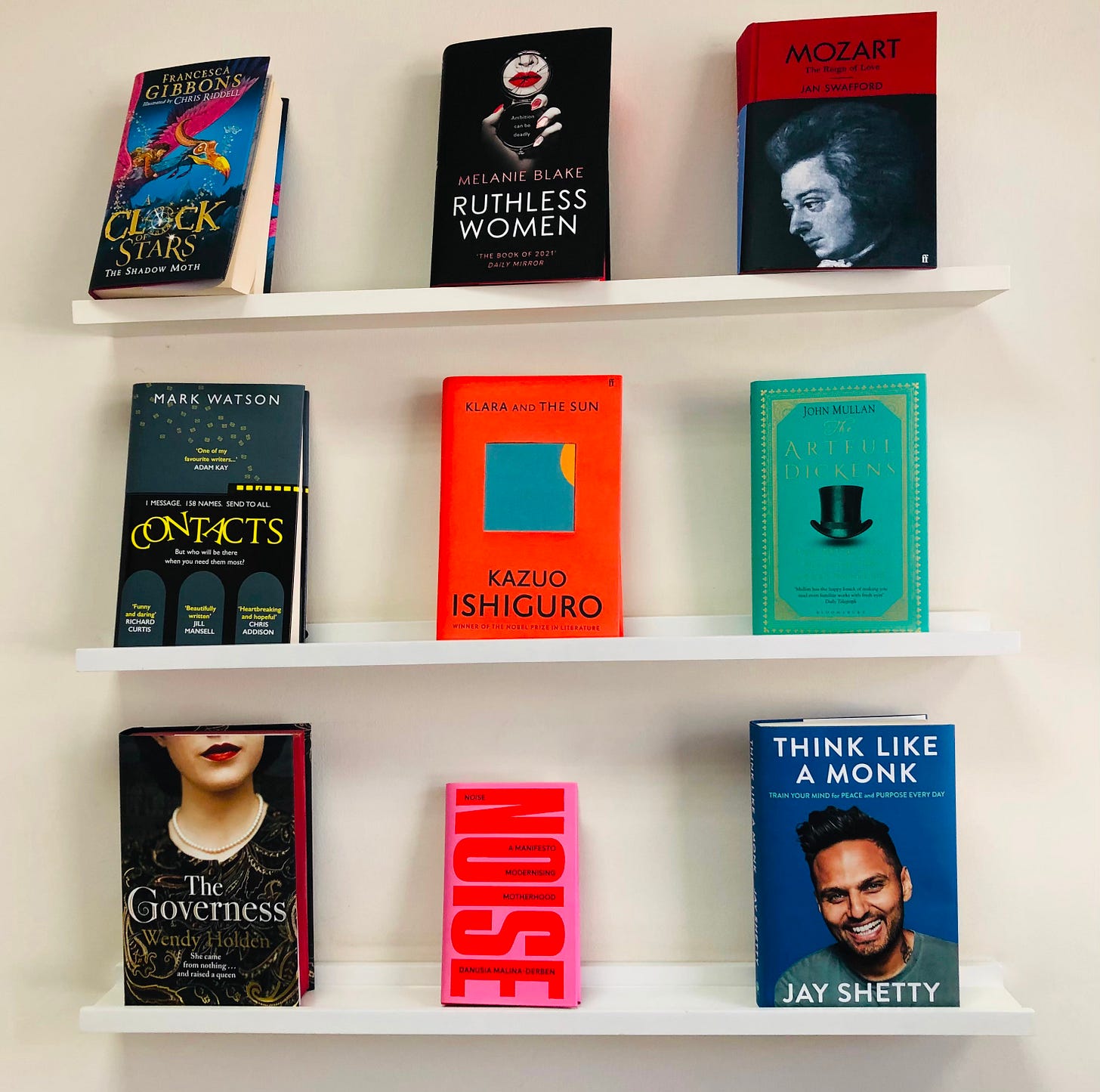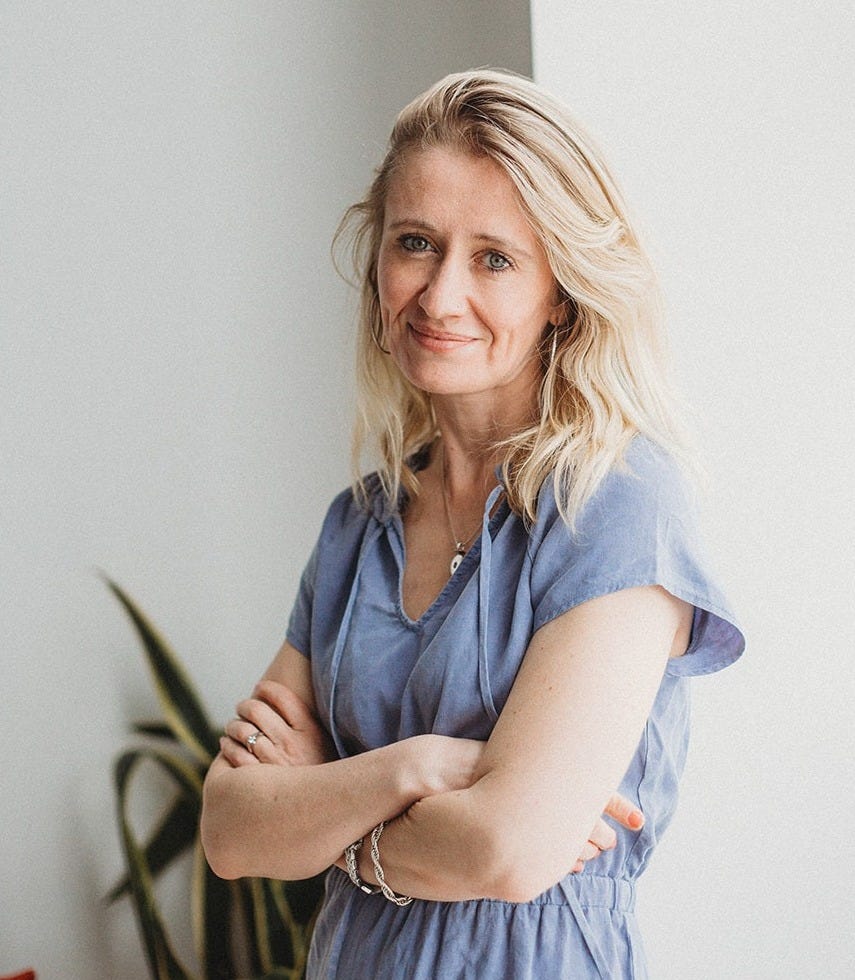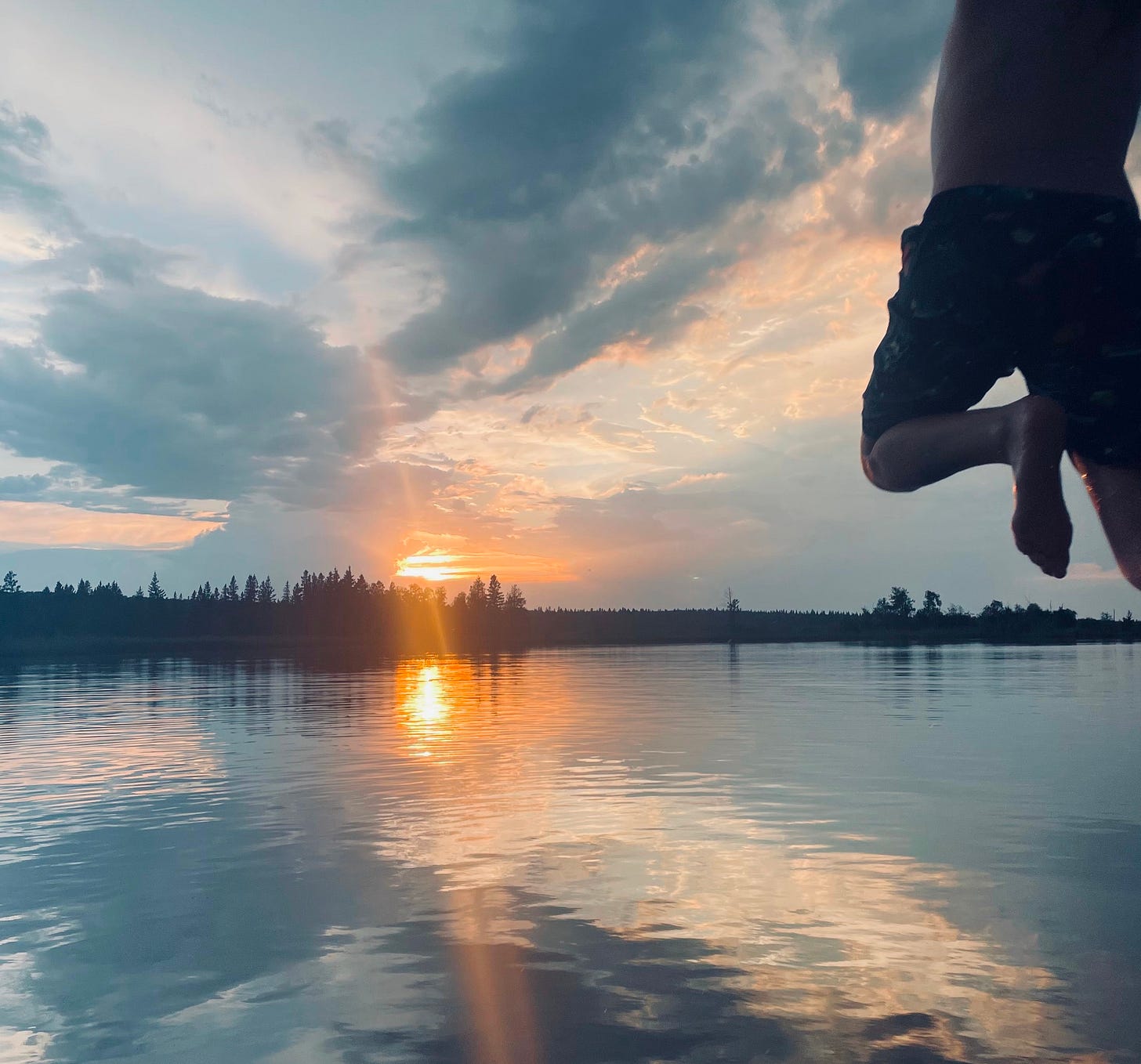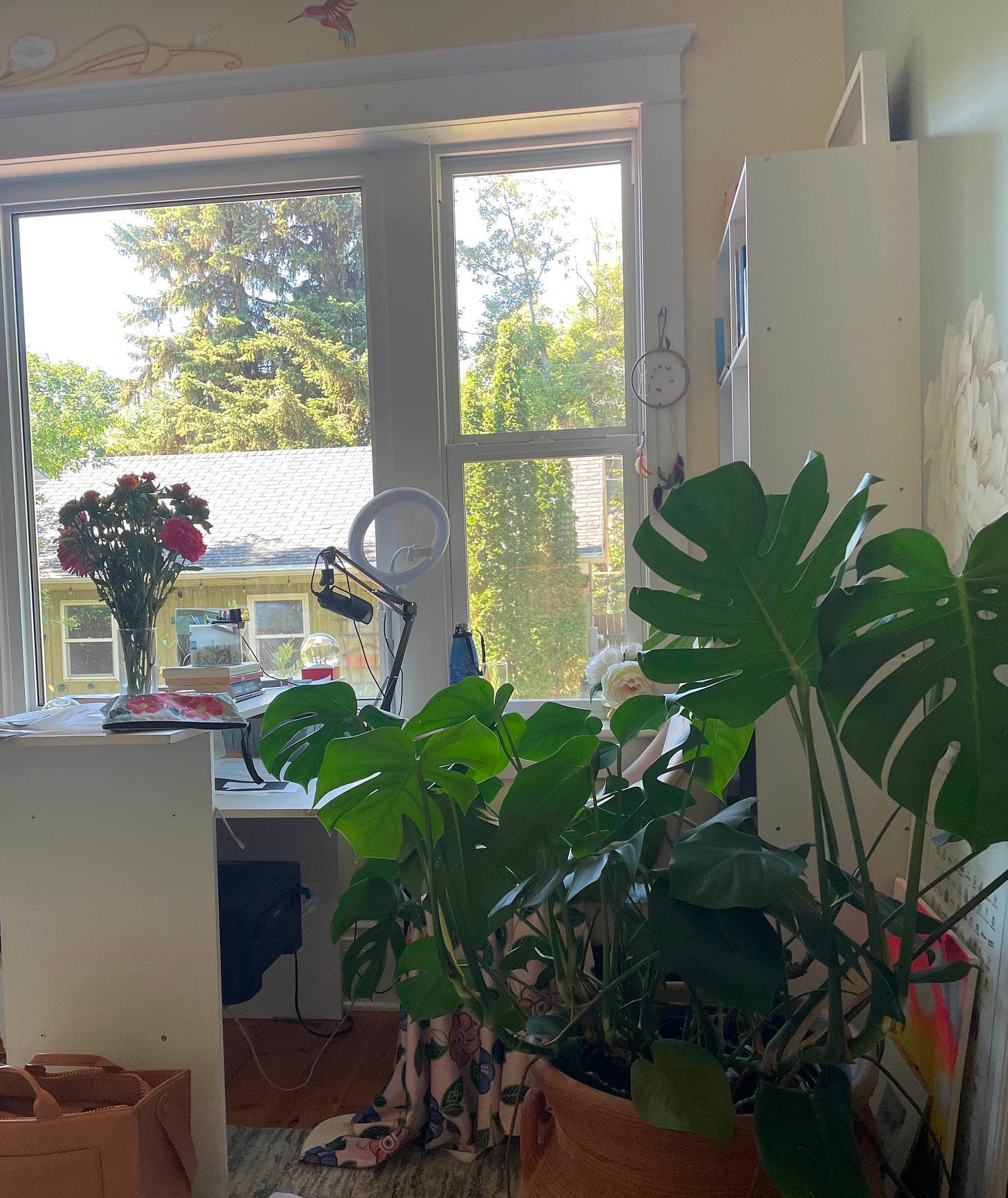Parents that Write: #11 Q&A with Alice Kuipers
SPARK: kids can be part of a writing life
Welcome to my weekly interview column.
When we talk about parent creatives ~ writers, artists, content creators ~ the focus often lands on the chaos of balancing creativity and parenting. Let’s CUT THE NOISE:
—> Parents publish books, drop albums, option screenplays, and create art + content every day.
How? That’s what we’re here to uncover.
Each week, I feature parent-creators answering eight quick questions, plus a few they handpick from my list.
Before we meet today’s guest, here’s a tiny look into my own creative life.
No-Fluff Notes from my Writing Life
Last week, I talked about setting up Triumph Press and the business side of things, but the next big decision was choosing the size of NOISE. For anyone new here, NOISE is my motherhood book— what I call a travel-sized bible for mothers on the go.
I’ve mentioned before how, as a way to make writing NOISE less overwhelming, I imagined it as more of a pamphlet in terms of process, but when it came to production, it needed to be something more substantial. I didn’t want to downgrade it.
That’s when I started asking myself: does a book really need to be the standard 50,000–80,000 words and in a typical size? What if it could be smaller, handier? Something that mothers could slip into their bags, take with them easily, practical, but still powerful.
One book really influenced my decision on size: Mary Beard’s Women & Power: A Manifesto. It’s this beautiful little book with a unique size that feels intentional. That got me thinking.
Why stick to the usual when I could create something that stands out in its own way? So, NOISE became what it is today—compact, portable, and perfect for mothers with busy lives.
Now, I knew choosing a non-standard size might bump up the costs a bit. Printers prefer to work with standard sizes, and there are lots of options, as explained in this BookBaby guide. But I was determined to make the book practical for readers.
The size I went for: 18.7 x 2.9 x 12 cm (7.2" x 1.2" x 4.7") isn’t standard. It doesn’t line up perfectly with the usual display sizes. This can make it stand out or feel a bit awkward, depending on how you look at it. But for me, it was the right choice. NOISE needed to be different.
Next week, I’ll be sharing the key steps behind finding the right printer for NOISE and what criteria mattered. Plus, my guest
will join me to talk about the intersection of her creative life and parenting. Hope you’ll join me for that!I’m thrilled to bring you today, author of
- an intimate and thoughtful Substacks where she reflects on the writing life, creativity, and the challenges of balancing work with personal life. With a conversational tone, Alice shares honest confessions about her experiences as an author, offering a behind-the-scenes glimpse into the realities of writing and publishing.Share a broad snapshot of your life. Who are you parent to and/or have caring responsibilities for?
I'm Head of Coaching at The Novelry, where I also coach writers one-on-one, teach group classes, and get inspired daily. I'm also the author of fourteen published books, most for young readers, although the one upcoming is for adults who want to write for kids.
As the parent of four children who live at home with me (ages 15 down to 9), and of an older daughter who lives in BC, who has brought a granddaughter into my life, I'm balancing a writing life, coaching life, and family life in a way that is challenging. Those challenges are raised because at least two of my kids have ADHD, one with seriously emotional regulation issues. I have ADHD, too. My mother-in-law with advanced Alzheimer's moved in with us eight months ago, with her dog, so we now have two dogs. And a hamster...
Over the years, we've hired help but since April we haven't had any childcare or support for my MIL. We're hoping she'll get into a daycare program at a local senior home soon.
Where can we find you?
Can you share favourite praise for your writing, or words you’d love to read about your work?
My newest book, Spark, comes out this month and this blurb filled me with joy:
"A masterpiece for anyone wanting to make their literary dreams come true. WOW! What a treasure of insights into the craft of writing. Spark is completely inspiring and motivating for book lovers and book writers. What a luxurious read. Spark is right up there with King's On Writing and Hodgins' A Passion for Narrative." -Richard Van Camp
Why do you write?
It calms me and makes me better at everything else I do: I'm a better parent, a better coach, and a better person when I'm writing. I share writing, and publish, to create space for conversations. My books for kids and YA are often about creativity. Over the last five years, I've been working on writing for adults, pivoting to writing a crime novel, which I love and which asks questions about secrets and the lies we live with.
What does the inside of your writing mind look like?
As someone with ADHD, settling to write is very difficult. Even more so with the constant interruptions. When I actually settle, my writing mind looks like a still lake: reflective, calm, a place to dive into. Before that, it's a churning, seething, dark pool that no-one would want to swim in.
How is your ability to write affected by being a parent and your ability to parent affected by your writing?
My ability to write is made tiny by my children. It's the gap in an almost closed door. When they go to school, like today, that door opens. It's dazzling--and sometimes I step into the light and write. As my kids have got older, I can open that door myself more often. I can tell them to go and do something and sometimes they listen. Through the years when they were little, I had a book published each second year, then seemed to have another baby in the spaces between. It was very full on--but I was always finding cracks to slip through and write, even if it was at five in the morning before the kids woke up. I have no idea, mind, what is written in most of those books...
When I've been writing I'm so much kinder and more able to be patient with my children. Writing calms my ADHD symptoms and soothes me.
How often do you write with your child around or not, and what kind of writing do you get done when your child is nearby?
I can't write with my children nearby. Getting into Flow and then being yanked out of it when one of my kids yells MUUUUUUUUUUUUUM actually feels painful.
For writers with young children, I remind them gently to try and find a short writing window and no more. Do that daily if possible, and build the habit, and relax into the thinking time around the short writing bursts. Every day is NEVER possible (someone is going to start barfing...), but it's the aim.
What is your best writing habit and how did you discover it?
I have a fun ADHD timer that rocks my world.
I turn down mean girl on my shoulder.
I put headphones in and play the same playlist for each writing project. Substack anything gets Chappell Roan...
What are the three most important characteristics of being a writer who is a parent?
Involving your kids. Is that a characteristic? What I mean is that they can be a part of your writing life: they can listen to small blocks of text, they can be gently encouraged to let you have a short writing window (maybe???), they can help you pick a cover or a font, my daughter reads as an editor... Maybe this is because so many of my books have been for kids--I haven't had them read any of the murder mystery...
Characteristics:
1. Acceptance
2. A sense of fun
3. Flexibility
What or who is your secret writing weapon?
The Novelry. Whenever I want to write and I'm stuck, I listen to one of my amazing colleagues in one of their workshops and I'm ready to write again.
What or who has been the most significant creative influence in your life?
My partner. He's a writer, too. He's so good at getting to the page, writing on the sofa with his mother to his left, the children wrestling like wild dogs at his feet, headphones on.
What are your coping tactics for being (constantly) interrupted in your thought process?
I get up early. I have done for years. The days I don't manage it, I feel cluttered and stressed all day.
What’s your best writing time?
5-7am
What motivates you to write amongst the flurry of family life?
Writing is my primary Flow activity and when I've spent time in Flow (same as anyone), I'm more alive, happier, cleverer, more relaxed.
You’re a writer: name 3 of your procrastination techniques.
Instagram
Threads
Substack notes ;-))))
How much torture/pleasure is involved in your writing life and in what form does it come?
I learned a long time ago to keep my writing space a place I wanted to go: I mean the actual writing part is zero drama. There's plenty of drama in my day-to-day, so the pleasure and torture that I feel around writing stays in the hours away from the page.
What unfinished writing projects do you have lying about?
SO MANY! Every book I've published has an unpublished pair. Dabble is full of unfinished ideas...
Share a picture of what ‘A Room of One’s Own’ means to you.
Closing Quote
“Perfectionism is the voice of the oppressor, the enemy of the people. It will keep you cramped and insane your whole life.” —-Anne Lamott













Loved this Danusia! I was nodding my head all the way through. As someone who’s only just started writing for “pleasure” i.e. personal essays vs copy for clients, I can so relate to the practise helping me process and organise my thoughts as Alice describes. Things that bothered me suddenly feel so much lighter after I’ve written them down and shared them. And congrats on printing your book! 👏
Awww two of my fave ladies get together! xo😍 Lovely to read your conversation!